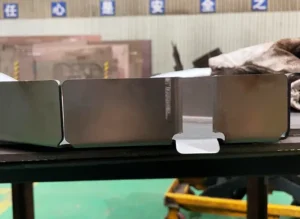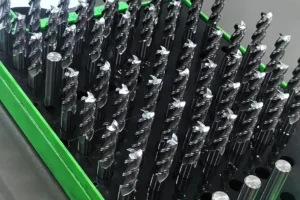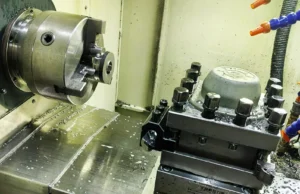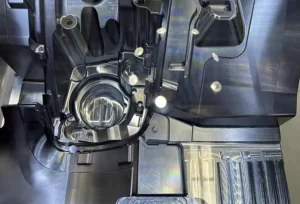
How fast does a CNC machine work?
Introduction
CNC (Computer Numerical Control) machines have revolutionized the manufacturing industry by enabling precise and efficient production of components since it come from.
These machines operate using computerized controls to execute a wide range of manufacturing tasks. One common question that often arises in the field is: How fast does a CNC machine work?
Overview of CNC Machine Speed
Several factors—such as the type of machine, the material being processed, and the specific task—can cause the operating speed of a CNC machine to vary.
In general, CNC machines are capable of operating at high speeds, with some machines achieving speeds of up to 30,000 RPM (Rotations Per Minute) or more.
It’s important to note that the speed of a CNC machine is not constant throughout the machining process. Different operations, such as cutting, drilling, and milling, require varying speeds to achieve optimal results.
Additionally, factors such as tool wear, material hardness, and cutting depth can also influence the speed at which a CNC machine operates.
Factors Affecting CNC Machine Speed
Several key factors can affect the speed at which a CNC machine operates. These factors include:
Type of Machine
The type of CNC machine being used can significantly impact its speed capabilities. For example, a high-speed milling machine will be able to achieve faster cutting speeds than a standard milling machine.
Similarly, a CNC lathe designed for high-speed turning operations will operate at a different speed range than a general-purpose lathe.
Material Being Processed
The type of material being processed also affects how fast a CNC machine operates.
Harder materials, such as stainless steel or titanium, may require slower cutting speeds to prevent tool wear and ensure precision.
On the other hand, machinists can often run CNC machines at higher speeds when working with softer materials like aluminum or plastics.
Tool Selection
The selection of cutting tools used in a CNC machine can impact its speed capabilities.
High-speed steel (HSS) tools are suitable for general-purpose machining but may not be able to withstand the high speeds required for cutting harder materials.
Carbide or ceramic tools, on the other hand, are better suited for high-speed machining applications.
Cutting Parameters
The cutting parameters, such as cutting speed, feed rate, and depth of cut, determine how fast a CNC machine can operate while maintaining quality and accuracy.
By optimizing these parameters based on the material and tool being used, manufacturers can achieve the desired production speed without compromising on quality.
Machine Rigidity
The rigidity of a CNC machine plays a crucial role in determining its speed capabilities. A rigid machine structure can withstand high cutting forces and vibrations, allowing for faster cutting speeds and improved accuracy.
Machines with poor rigidity may experience chatter and tool deflection at high speeds, leading to reduced machining efficiency.
Spindle Speed
The spindle speed of a CNC machine refers to the rotational speed of the cutting tool. Higher spindle speeds enable faster cutting rates and increased productivity.
Some CNC machines are equipped with variable-speed spindles that can be adjusted to accommodate different materials and cutting operations.
Tool Path Optimization
Optimizing the tool path in a CNC program can help maximize the machine’s speed and efficiency.
By reducing unnecessary tool movements and minimizing idle time, manufacturers can streamline the machining process and improve overall productivity.
Advanced CAM (Computer-Aided Manufacturing) software is often used to generate optimized tool paths for CNC machines.
Conclusion
In conclusion, the speed at which a CNC machine operates is influenced by a variety of factors, including the type of machine, material being processed, tool selection, cutting parameters, machine rigidity, spindle speed, and tool path optimization.
By carefully considering these factors and optimizing the machining process, manufacturers can achieve high-speed production while maintaining quality and precision.




1 thought on “How fast does a CNC machine work?”
So good I read it twice.
Comments are closed.